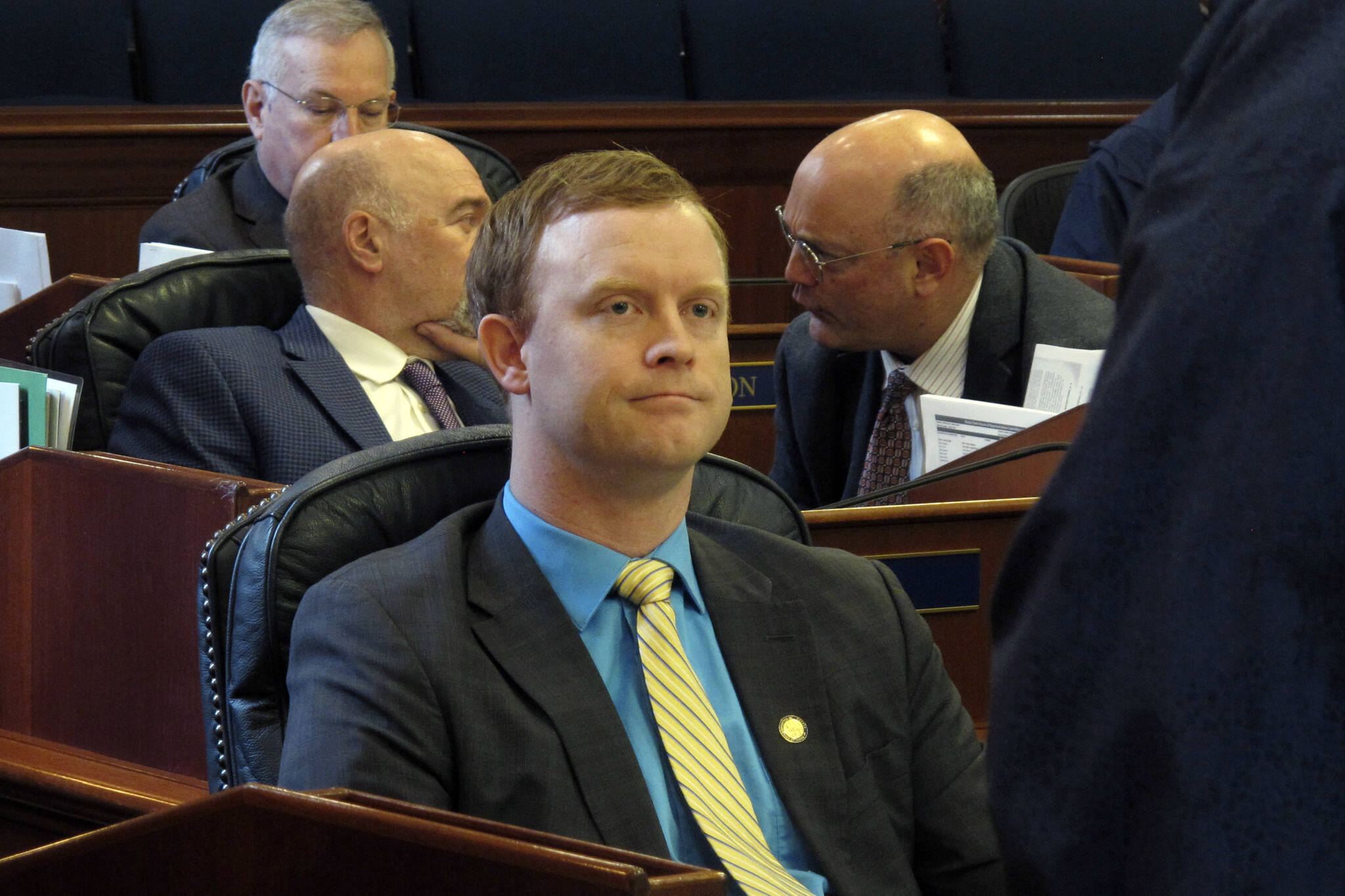By James Brooks
Alaska Beacon
An Anchorage Superior Court Judge has ruled that Wasilla Republican Rep. David Eastman’s membership in the Oath Keepers does not violate the Alaska Constitution’s disloyalty clause because of First Amendment protections for free speech.
The decision, which may be appealed, means Eastman may continue serving in the Alaska Legislature. Eastman was re-elected in November.
In a 49-page order issued Friday morning, Judge Jack McKenna said the Oath Keepers — labeled an antigovernment militia by the federal government — “are an organization that has, through words and conduct, taken concrete action to attempt to overthrow by violence the United States Government.”
That meets the standards for disloyalty under Article XII, Section 4 of the Alaska Constitution, which says that someone who aids or belongs to an organization that advocates the forcible overthrow of the U.S. government is barred from holding office here.
But the ruling doesn’t end there. The First Amendment must be considered, McKenna said: “The court further finds that Rep. Eastman is a member of that organization, but that he does not and did not possess a specific intent to further the Oath Keepers’ words or actions aimed at overthrowing the United States government. The court therefore finds that he is not disqualified from holding public office by Article XII, Section 4.”
The decision comes in response to a lawsuit filed by a Matanuska-Susitna Borough resident, Randall Kowalke, who challenged Eastman’s eligibility for office under the disloyalty clause.
A ruling in Kowalke’s favor could have prevented Eastman from taking office.
“We’re obviously disappointed by the outcome and need to figure out our next steps,” said Goriune Dudukgian, who represented Kowalke at a seven-day bench trial.
An appeal to the Alaska Supreme Court has been expected, but Dudukgian said a decision on whether or not to appeal will not take place until after Christmas.
“We obviously have to make a quick decision,” he said.
Eastman did not respond to a text message seeking comment but has been actively fundraising for his legal defense. In emails sent to supporters, he solicited donations and suggested that he could spend as much as $300,000 on his case. A fundraising dinner had been scheduled for Friday night in Wasilla.
McKenna’s order has been placed on hold pending an appeal to the Alaska Supreme Court, meaning Eastman is not yet fully clear to take office. The Alaska Legislature convenes Jan. 17.
The Alaska Division of Elections was also a party to the lawsuit, and McKenna’s final order did not address the division except to say that its role is resolved by the broader decision.
“The Division of Elections takes no position on the merits of these claims. As ordered by the Court, the certification of the House District 27 election will be delayed until there is another order,” said Patty Sullivan, communications director for the Alaska Department of Law.
McKenna’s findings are a new interpretation of the Alaska Constitution’s disloyalty clause, which has never before been tested in court, and go beyond the clause’s plain language. The clause was written during the anticommunist Red Scare of the 1950s.
Intended to target the Communist Party of the United States, the clause declares that membership alone is enough to rule someone ineligible for public office in Alaska.
Subsequent rulings by the U.S. Supreme Court found that the First Amendment protects speech and association to a greater degree than envisioned by the authors of the Alaska Constitution, and McKenna took those rulings into account.
“The court holds that Alaska’s disqualification for disloyalty clause must be interpreted in harmony with the First Amendment to the United States Constitution,” he said.
In order for a person to be barred from public office under the disloyalty clause, he said, “there must be ‘knowing affiliation with an organization possessing unlawful aims and goals, and a specific intent to further those illegal aims.’”
The latter part of that statement was taken from a 1982 U.S. Supreme Court decision affirming that nonviolent action is protected by the First Amendment.
McKenna had hinted at the direction of his ruling with a mid-trial request for additional briefing on the intersection of the disloyalty clause with U.S. constitutional amendments.
Dudukgian argued that the 1982 Supreme Court decision and similar cases aren’t relevant because the case is about Eastman’s qualifications, not his ability to join a group. McKenna disagreed.
“Even under rational basis review, interpreting Article XII, section 4 to bar a person from office for mere membership in an organization violates the First Amendment,” he said.
He concluded that the Oath Keepers did intend violent action and the overthrow of the U.S. government during the Jan. 6, 2021 insurrection at the U.S. Capitol, but he also found that Eastman did not interact with or support the Oath Keepers during the insurrection.
Eastman didn’t interact with the group’s leaders or other Oath Keepers before or during the insurrection, and he didn’t enter the restricted grounds around the Capitol during the insurrection, the trial showed.
“Based upon the evidence presented at trial, the court does not find that Rep. Eastman had a specific intent to aid the Oath Keepers in planning for January 6. Nor does the court find that Rep. Eastman had a specific intent to aid the Oath Keepers’ actions on January 6,” McKenna said.
This article originally appeared online at alaskabeacon.com. Alaska Beacon, an affiliate of States Newsroom, is an independent, nonpartisan news organization focused on connecting Alaskans to their state government.
James Brooks is a longtime Alaska reporter, having previously worked at the Anchorage Daily News, Juneau Empire, Kodiak Mirror and Fairbanks Daily News-Miner.

